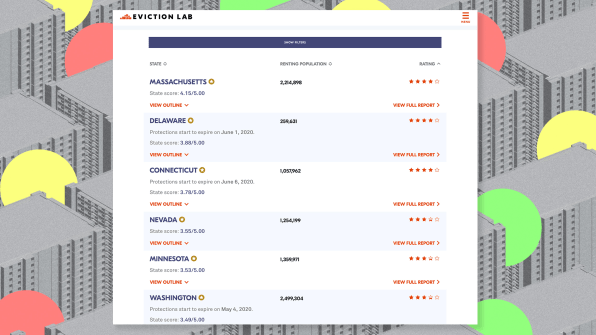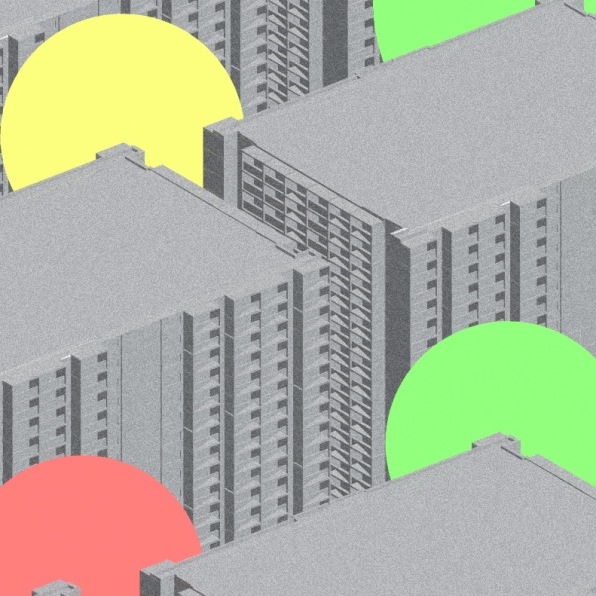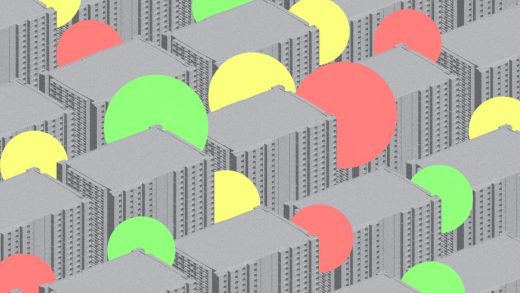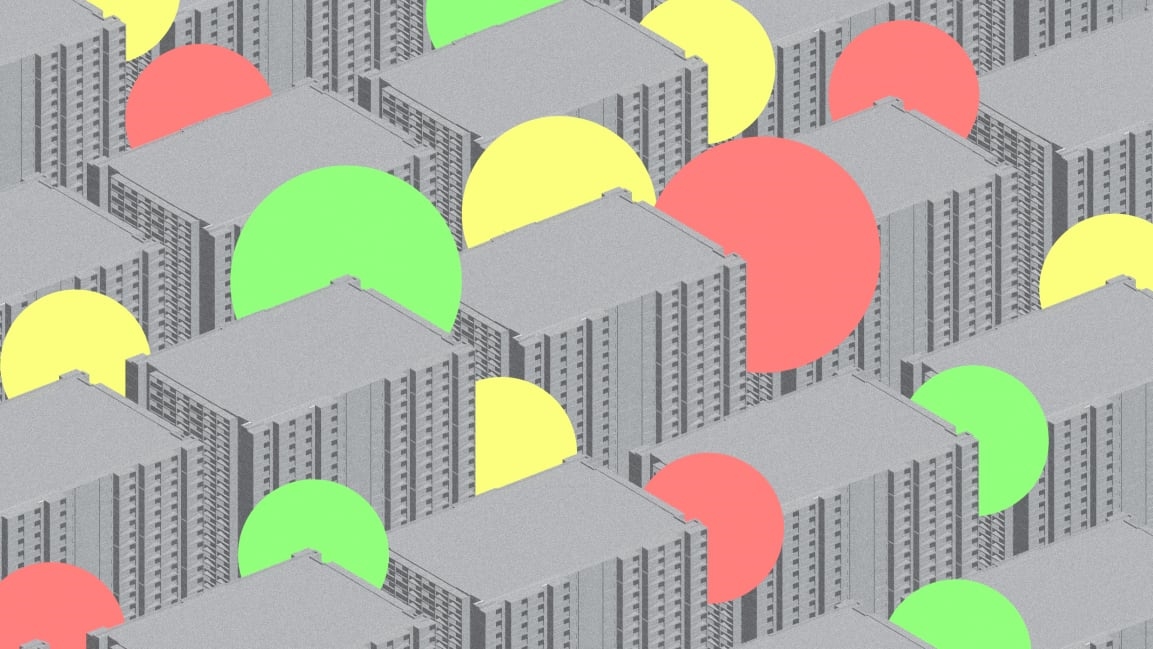Rent is almost due again: Here’s how well your state is protecting renters from eviction
With millions of Americans out of work and unable to pay rent because of the coronavirus pandemic, activists and legislators have been pushing for protections like eviction moratoriums and leniency regarding late fees. With no policies coming from the federal government, though, it’s been up to individual states to make sure their residents have stable housing, at a time when access to safe housing is directly linked to public health—and not every state is taking the same steps.
A COVID-19 housing policy scorecard from The Eviction Lab, a team of housing researchers based out of Princeton University, lets you compare what each state is doing to protect renters during this precarious time.
To create the scorecard, the Eviction Lab partnered with Emily A. Benfer, a visiting associate clinical professor of law at Columbia Law School and director of the school’s Health Justice Advocacy Clinic, in order to distill all this legal information into something people can actually understand. “Across the country, there are thousands of newly released emergency orders, declarations, and legislations that are designed to address the need to close the courts in order to stop the pandemic, and many of them address eviction and housing specifically,” she says. “It is overwhelming, I think, for people to try to understand the result of the culmination of all of those orders.”
When they first started this research, Benfer says, there was a general sense that eviction moratoriums were in place across the country. But they quickly found out that wasn’t true. “The protections vary from state to state, but some states have no statewide protection at all,” she says. States that do have renter protections may still limit them to certain cases, as opposed to all evictions, and that isn’t always clear to the public.

The COVID-19 Housing Policy Scorecard shows, for every state, an overall score out of five, and indicates whether or not that state has enacted a variety of policies—suspending housing court hearings, offering free utility reconnection, halting rent raises, and suspending eviction orders for hardship or nonpayment. Gold stars throughout the scorecard highlight “high impact interventions,” Benfer says, which have “the greatest likelihood of protecting and preserving the tenancy.” Users can click through to see a more detailed report on each state.
The act of eviction isn’t a one-step process. There are essentially five phases: the initiation of the process and notice by the landlord, the court filing, the hearing, the court order, and then the execution of the order by law enforcement. Looking at policies that offer protection against each of those steps is important so renters know, for example, if an eviction can still be filed but not yet executed. “Stopping the process from starting is a very different intervention with very different outcomes than simply tolling court deadlines,” Benfer says.

Each state is ranked based on their rating, and as of this writing, Massachusetts tops the list in terms of renter protections. That wasn’t true when the scorecard first launched Monday, April 20, though, because at that time, the state had not yet taken any direct measures to address eviction during the coronavirus pandemic. Once Massachusetts Governor Charlie Baker signed a law that had been sitting on his desk—one that thoughtfully and intentionally considered all five states of eviction, Benfer, says—the state moved up the scorecard’s ranking.
States can backslide too, though; Montana dropped a few spots on the list last week, she says, because Governor Steve Bullock issued an executive order that limited the eviction moratorium to a certain subset of the population. The list is malleable in both directions, depending on how states continue to handle this issue over the course of the pandemic. Every day, Benfer, Eviction Lab researchers, and law and public health students comb through the Supreme Court website, state legislative sites, news articles, and more in order to update the scorecard. As of this writing, no state has initiated all of the measures the researchers included on the scorecard, which were identified based on conversations with housing nonprofits, advocates, and tenant groups.
Housing protections are crucial to the health of each state’s residents—both COVID-19 related and otherwise. Not only does a stay-at-home order require that you have a home to stay in, evictions in general have been linked to negative health outcomes. “Even the mere threat of eviction, so the landlord giving a tenant notice or initiating the process, is bad for health,” Benfer says, especially for high blood pressure and depression.
These protections are also crucial to how that state will recover from COVID-19, in terms of public health and economically. There are big benefits to preventing eviction, Benfer says, related to preventing healthcare costs, job losses, missed school time, and the cost of homelessness. In the middle of a pandemic, all of this is even more important. “The United States had a major housing crisis even before the pandemic, and after the pandemic, we predict that it will rise to cataclysmic proportions” Benfer says. “We need to ensure that states have the ability and support to choose a future in which all people are safely and stably housed.”
Benfer hopes the COVID-19 Housing Policy Scorecard can help make that happen. She hopes individual renters use this resource to learn about their own protections—the landing page for the scorecard directs people to community organizations that may be able to help them directly, as well—and that legislators in each state use it to understand what they could be doing better. “The bottom line,” she says, “[is] if we want to secure the health of the nation, we must keep people safely housed in decent and healthy homes.”
(11)



